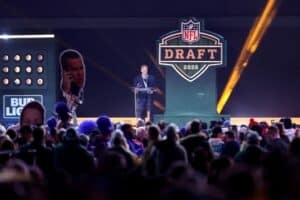
A bill that would have brought online casino gambling to Maine stalled in committee shortly after it was introduced, and proponents will have to wait until next year to determine if an iGaming bill can gain traction in the next session.
Tribal Control
The iGaming legislation known as “An Act to Create Economic Opportunity for the Wabanaki Nations Through Internet Gaming,” and sponsored by Ambureen Rana as House Bill 1164, failed to escape from the Joint Veterans and Legal Affairs Committee shortly after its introduction.
The online casino gambling measure would have given the state’s four federally recognized Wabanaki Nations tribes a monopoly on iGaming, the same as they currently enjoy in the state’s mobile sports betting industry.
Historical Disadvantages
Unlike many gaming tribes throughout the nation, the Wabanaki are prohibited from building land-based casinos, the cash cow of many Native American tribes, courtesy of the Maine Indian Claims Settlement Act of 1980, which only allows them to operate bingo parlors. This puts the Wabanaki at a severe economic disadvantage, which is why lawmakers are inclined to give them exclusive consideration in the digital gaming industry.
Representative Rana cited this liability, saying, “Because the Wabanaki Nations have not enjoyed anywhere near the level of economic growth as that of other tribes in this country, they face an ongoing economic crisis.”
Pos Basset, Chief of the Passamaquoddy Tribe at Sipayik, testified on behalf of the bill, stating it would “generate revenues that will help us save enough money to do things like move our wastewater treatment plant and survive what’s to come from rising sea levels.”
Casinos Oppose Bill
Sports betting is legal in 39 states, while the far more lucrative online casino gambling can be found in only seven markets, including New Jersey, Delaware, West Virginia, Pennsylvania, Michigan, Connecticut, and Rhode Island.
The primary concerns revolve around fears of addictive gambling behavior and the cannibalization of business from land-based casinos that employ hundreds, if not thousands, of workers. Deleterious effects on the casino’s bottom line could lead to job losses, while addictive gambling increases could drain public health resources.
Casino Industry Raises Alarms
Maine Gambling Control Board Chair Steve Silver said the land-based casinos should be considered, stating, “Oxford and Hollywood Casinos employ nearly 1,000 Mainers. Legalizing iGaming without permitting them to participate will lead to job cuts — I am willing to bet on it.”
Chris Jackson, who spoke on behalf of Hollywood Casino, voiced his opposition, stating, “Passage of this bill, to be clear, would constitute the greatest single expansion of gaming in our state’s history without the vote of the people of Maine. It would threaten facilities in Bangor and Oxford.”
Mobile Operators Oppose Limited Market Access
And in a unique twist, even some of the mobile sports betting/iGaming platform operators like FanDuel, Fanatics, ESPN Bet, and MGM voiced their strident opposition to any iGaming bills that did not include the inclusion of an open market. Currently, the four Wabanaki tribes have exclusive mobile sports betting deals with Caesars and DraftKings.
Michael Ventre, speaking on behalf of FanDuel, Fanatics, and BetMGM, argued that the market should be opened to more than just two gaming operators, stating, “We wanted to caution the committee on moving forward with this bill, though, because we are concerned that it will not create the healthy, regulated market that we have seen in many other states.
“The lack of legitimate choice for the consumer can encourage individuals to seek alternative methods outside of the regulated marketplace.”







